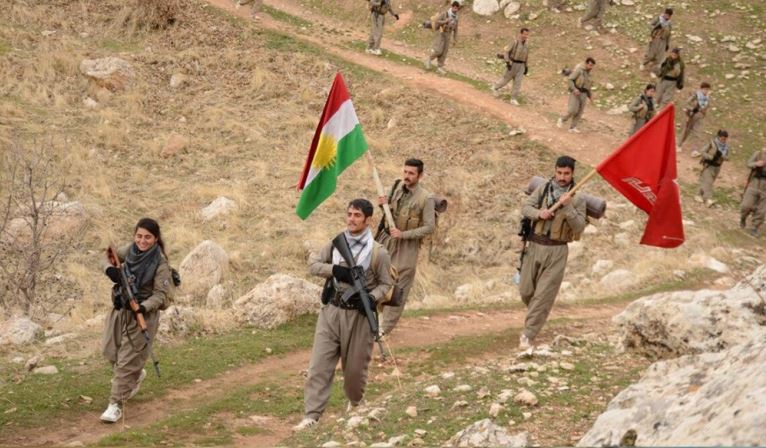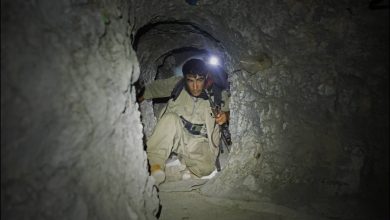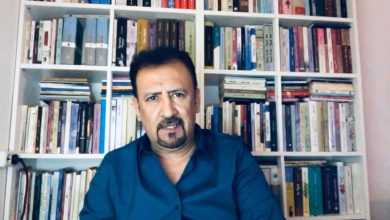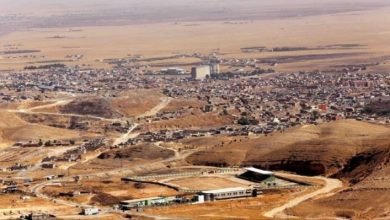Aryan Esmaeili: “My childhood was truly bitter. I had neither a family to support me nor a home I could call a ‘refuge’.”
The family, as one of society’s most fundamental institutions, plays a crucial role in shaping an individual’s personal and social identity. When families face crises like divorce, the deep and sometimes irreparable impacts on children can be profound. Parental divorce can lead to feelings of rejection and loneliness in children, reinforcing the idea that they have no sanctuary. This situation is particularly exacerbated when children are exposed to various social dangers due to a lack of emotional and financial support.
Aryan Esmaeili, whose story is recounted in this interview, is an example of such a situation. With his parents’ divorce during his childhood, he was forced to seek refuge with his grandmother. However, his living conditions plunged him into a world of loneliness and despair. Seeking an independent identity and a bright future, Aryan eventually fell into the trap of armed groups. Seduced by their deceptive promises, he decided to join an armed group called KOMALA. This story illustrates the profound challenges arising from divorce and its impact on individuals’ lives—challenges that can push them towards dangerous choices.
In this interview, we will explore various aspects of Aryan’s life and the influence of his family on his life path. We will show how a lack of family support can affect an individual’s life and lead them to decisions that may have severe consequences. Aryan Esmaeili, born on December 28, 1991, in Sanandaj, holds a high school diploma and currently works at a bakery in Sanandaj. In 2018, due to numerous personal and family problems (his parents’ separation, having nowhere to live, and living with his grandmother, who developed Alzheimer’s in her later years), he became acquainted with the KOMALA group via Instagram. They deceived him with alluring promises of migration to Europe and continuing his education (as they realized he was interested in studying). After illegally crossing the border with the help of group members, Aryan joined. He immediately realized the promises were false, but because they told him returning to Iran meant torture, prison, and execution, he regretted his decision.
However, during that time, he married a girl named Helia Ahmadi, who was also a member of the KOMALA group. After two years of membership, he and his wife left the group and resided in Sulaymaniyah for four years. Due to the difficult conditions and homesickness, they decided to return in 2024 and are currently living in Sanandaj.
Question: Mr. Esmaeili, let’s start with the past; how was your childhood and adolescence?
Aryan: My childhood was truly bitter. I had neither a family to support me nor a home I could call a “refuge.” When I was very young, my parents separated, and each went their own way. It felt like I got lost in the middle of that separation. From then on, I was entrusted to my grandmother. She was a good woman, but old and tired. In her final years, she didn’t even recognize me anymore. She had Alzheimer’s and often didn’t know what day it was or who I was. I grew up feeling rejected from childhood. My classmates would go home, and someone would open the door for them, but I would return to a silent house with only an old woman, either asleep or lost in the past. At night, I would cry myself to sleep, wishing for the day I could escape this situation.
Question: Despite this, you studied and got your diploma. What made your life’s path change?
Aryan: Yes, I got my diploma, but with great difficulty. I was very interested in continuing my education and even considered studying medicine. But without money, without support, and even without a quiet room, it was impossible to continue. Slowly, I realized that all doors were closed to me. All I had left was my phone and the internet; a virtual world where at least my voice could be heard. On Instagram, I met people who introduced themselves as members of a political group. They said they were from KOMALA and were looking for talented young people. At first, they only asked simple questions, but gradually they started praising me and my abilities. They would say, “Why should you stay in Iran? There’s no future for you here. Come to Iraqi Kurdistan, and from there, we’ll send you to Europe so you can continue your education and even get a scholarship.” These words are very tempting when you have no glimmer of hope, especially when you feel like someone finally sees you, understands you, and believes in you.
Question: What made you decide to leave? Did your family or anyone know about your decision?
Aryan: There was no one to know. I was so alone that no one asked me questions or worried about me. I decided to go. I didn’t even have enough money, but one of the group members said they would help me cross the border. They said I didn’t need a passport, and they would get me across. And that’s what happened; on July 6, 2018, I crossed the border, illegally and hopeful for the dream of Europe.
Question: What did you see after arriving in the Kurdistan Region? Were the promises fulfilled?
Aryan: Not only were the promises not fulfilled, but I quickly realized I had been deceived. From the very first day, they took me to a military base and told me I had to train and become a member of the group. I said, “I came here to study, not to fight.” But they said, “There’s no turning back now. If you return to Iran, they’ll execute you. Stay here, it’s for your own good.” Scared of both returning and staying, I just kept silent. Some time passed until I realized I wasn’t the only one in this story; many others had come with the same promises and were now stuck in the same situation.
Question: What happened after you joined, and what did you do?
Aryan: There, I met a girl named Helia Ahmadi. She, like me, had been lured there by promises and lies. At first, we were just commiserating, but gradually we felt we could rely on each other. In that environment full of control and fear, having someone who understood you was a great blessing. We got married, in their own way, of course. A simple ceremony without family and without parental permission, just with the commander’s approval. Marrying Helia was a turning point in my life, because from then on, we started thinking more seriously about escaping.
Question: How did you leave the group? Did they allow you to go, or did you escape?
Aryan: Leaving there wasn’t easy, especially if you wanted to go with your spouse. But we had decided not to continue. After two years, there was nothing left of us; we had no hope and no energy. We concluded that we either had to die or save ourselves. Fortunately, we managed to gain the group’s consent for “settlement” by feigning illness and family problems. Of course, this wasn’t easy either; it took several months, and we talked a lot and were under surveillance. They even held my wife hostage for a month, and I barely managed to bring her with me. But in the end, we succeeded in leaving the base and going to Sulaymaniyah to start a new, albeit difficult, life.
Question: How were those four years in Sulaymaniyah? Why did you decide to return?
Aryan: Sulaymaniyah was just an exile for us, not a life. Without identity, without residency, and without any legal support. Helia couldn’t work, and I occasionally found odd jobs. Everything was temporary, and we had no stability. When we found out we were going to have a child, we became even more afraid. We didn’t want our child to be born in a foreign land without identification. After six years, we decided to return. Everyone told us not to risk it, that we might get caught. But we preferred risk over misery.
Question: Now that you’ve returned, what’s the situation like? And if someone like you wanted to go down the same path, what advice would you give?
Aryan: We returned to Sanandaj, and now I’m a baker. My work is hard, but at least it’s real. Helia is by my side, and our child will be born in a few months. I’m not saying everything is perfect, but I’m no longer deceived, and I don’t mistake mirages for reality. If someone like me, facing a thousand problems, is tempted to go down that path, I would just tell them one sentence: “No group is looking to save you; they are only looking to use you. Don’t sell yourself short.“






